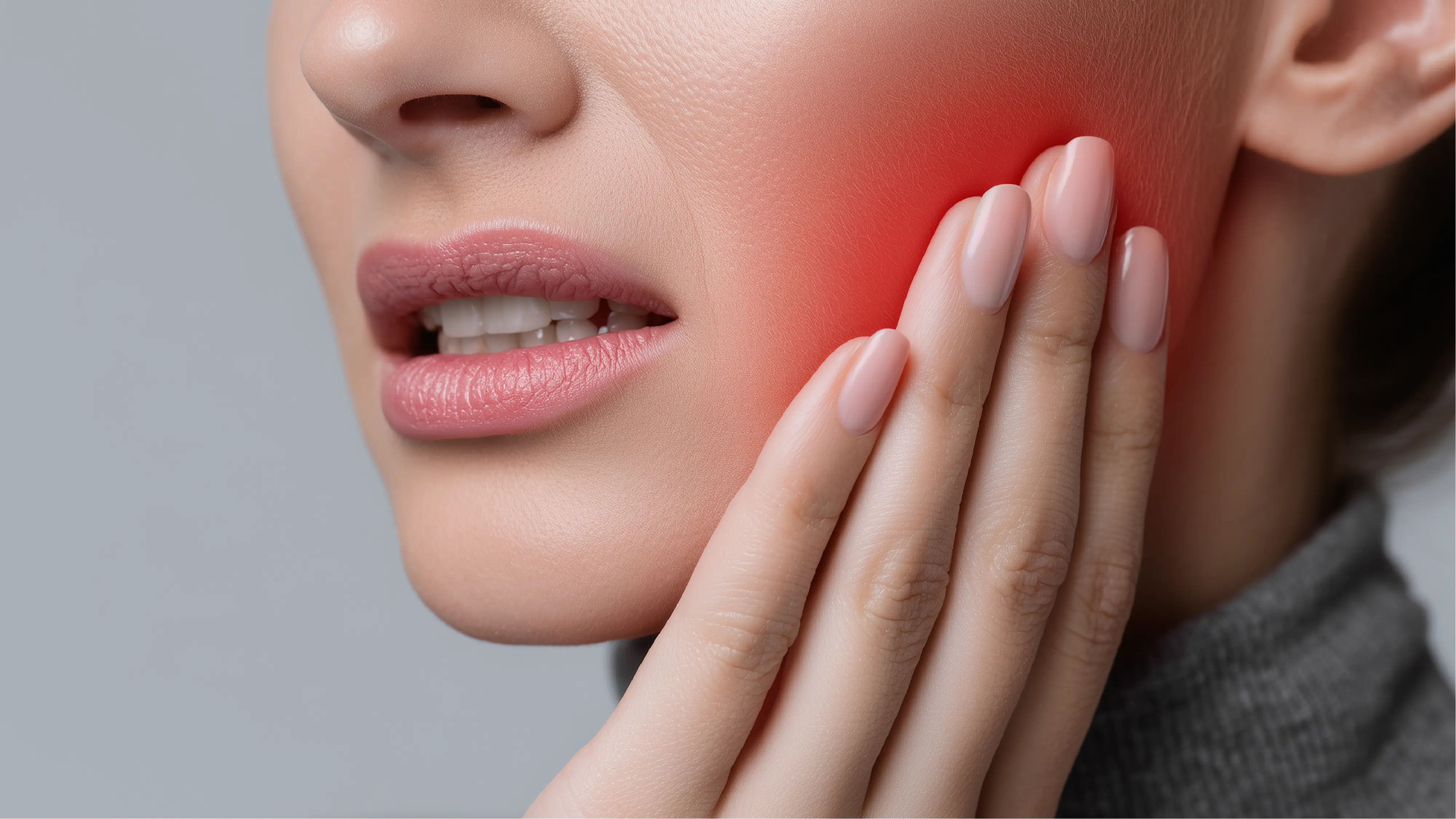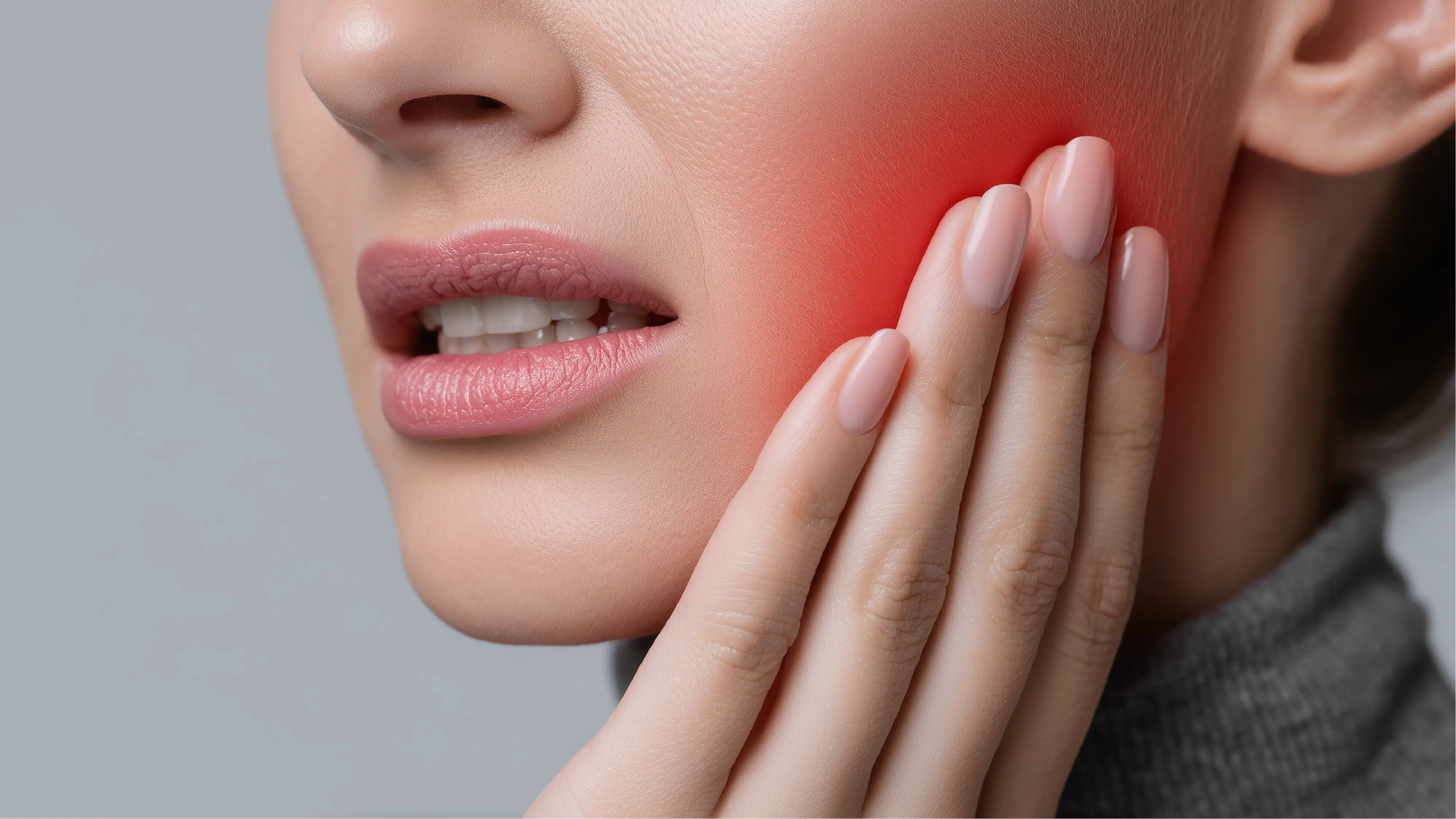Tooth sensitivity is one of the most common dental problems people experience in daily life. In short, it can be described as a sharp, sudden pain felt in the teeth when consuming hot, cold, sweet, or sour foods and drinks. The main cause of sensitive teeth is usually the wearing down of tooth enamel or gum recession, which exposes the deeper layers of the tooth.
Tooth sensitivity can significantly affect both your daily comfort and eating habits. However, with the right care and treatment methods, it is possible to overcome this problem.
So, what helps relieve tooth sensitivity?
What Is Tooth Sensitivity?
Tooth sensitivity can be defined as an excessive reaction of the teeth to external stimuli. This problem is characterized by a sudden, sharp, and usually temporary pain. Sensitivity occurs when the protective enamel layer covering the tooth surface wears away or when the gums recede.
Beneath the enamel lies the dentin, a layer that is sensitive to hot, cold, and other stimuli. Dentin contains tiny tubes (tubules) that connect to the nerves in the center of the tooth. When the enamel is worn down or damaged, these tubules become exposed, allowing external stimuli to directly reach the nerves — which causes pain.
What Causes Tooth Sensitivity?
There are many underlying causes of tooth sensitivity. Most are related to the weakening or damage of the tooth’s protective layers. The most common causes include:
1. Gum Recession
Gum recession exposes the tooth roots, leaving them unprotected and increasing sensitivity. It can occur due to incorrect brushing techniques, gum disease, or naturally with age.
2. Incorrect Brushing Techniques
Brushing too hard or using a toothbrush with hard bristles can wear away enamel over time, eventually leading to tooth sensitivity.
3. Acidic Foods and Drinks
Regular consumption of acidic foods and beverages can erode enamel, exposing dentin and increasing sensitivity.
4. Tooth Decay and Worn Fillings
Cavities or old, cracked fillings can leave the dentin unprotected and trigger sensitivity.
5. Gum Disease
Conditions that cause gum inflammation can expose root surfaces and increase sensitivity.
6. Teeth Grinding or Clenching (Bruxism)
This habit can cause microcracks and enamel wear, which naturally leads to sensitivity.
7. Teeth Whitening Products
Some whitening products — especially those used without professional supervision — can cause temporary sensitivity.
8. Cracked Teeth
Cracks in the teeth make it easier for external stimuli to reach the dentin and nerves, resulting in increased sensitivity.
These common causes damage the tooth’s protective layer, exposing the dentin and leading to tooth sensitivity.
What Are the Symptoms of Tooth Sensitivity?
Tooth sensitivity manifests through several symptoms that can negatively affect your quality of life. In severe cases, the pain can even cause discomfort while eating, drinking, or breathing.
The most common symptoms include:
- Sensitivity to hot or cold foods and drinks
- Pain when eating sweet or sour foods
- Discomfort while brushing or flossing
- Pain even when breathing in cool air
If you experience any of these symptoms, it’s best to see a dentist without delay. Your dentist can identify the underlying cause and recommend appropriate treatments to relieve the problem.
How to Relieve Tooth Sensitivity
The treatment of tooth sensitivity involves both professional dental care and improving daily habits. The first step is to identify the underlying cause and treat it directly.
Here are some effective methods to relieve and manage tooth sensitivity:
1. Use Proper Brushing Techniques
Brush gently with a soft-bristled toothbrush to avoid damaging your enamel or gums. Use fluoride toothpaste to strengthen enamel and reduce sensitivity.
2. Visit Your Dentist Regularly
Routine dental check-ups are important to detect early signs of cavities or gum disease — common causes of sensitivity.
3. Gum Treatment
If gum problems are causing the sensitivity, your dentist may recommend treatment to restore and protect receding gums.
4. Fluoride Applications
Your dentist may apply fluoride gel or varnish to strengthen enamel and reduce sensitivity.
5. Restorative Treatments
If sensitivity is caused by cavities or worn fillings, restorative procedures such as fillings, inlays, onlays, or crowns can rebuild the protective layer.
6. Use a Mouthguard for Bruxism
If teeth grinding is the cause, using a protective night guard can prevent further damage to the enamel.
7. Avoid Trigger Foods and Drinks
Limiting acidic and sugary foods or beverages can prevent further enamel erosion and serve as an effective preventive measure.
These are among the most effective ways to relieve tooth sensitivity. However, if the problem persists or worsens, it’s best to consult a dentist.
If you’re looking for a trusted dental clinic, Dentakay is here for you. Our team of experienced dentists and healthcare professionals are always ready to help. You can visit our clinics or contact us easily by filling out our online form.
















































